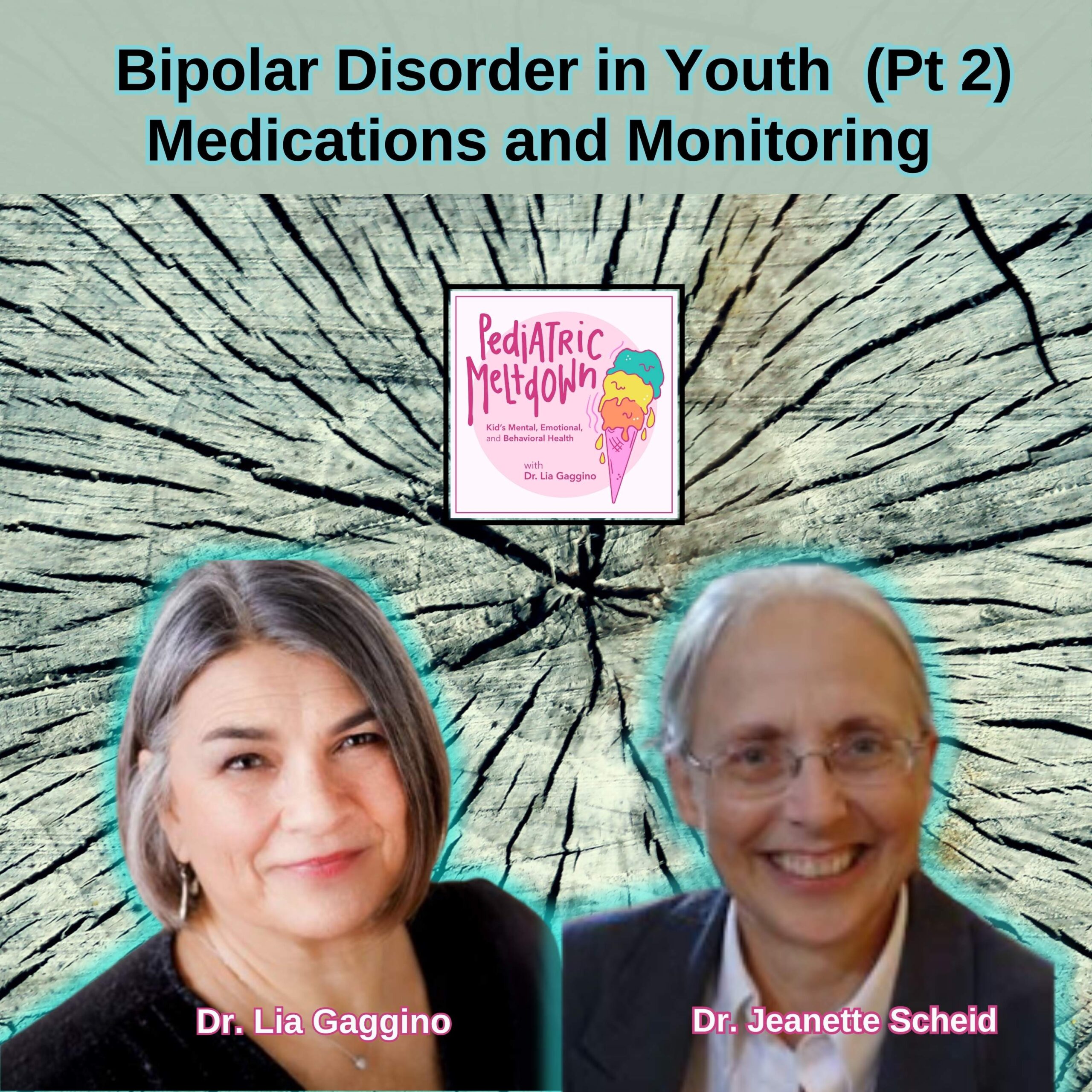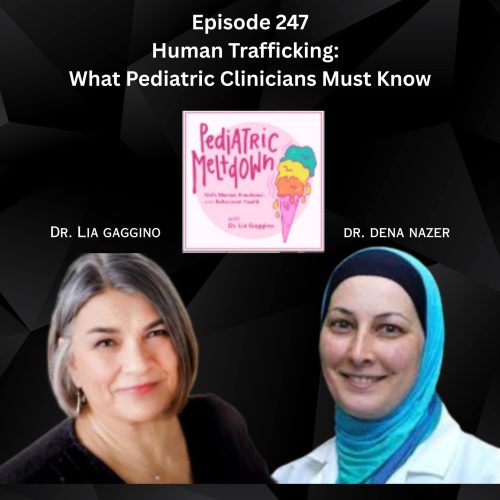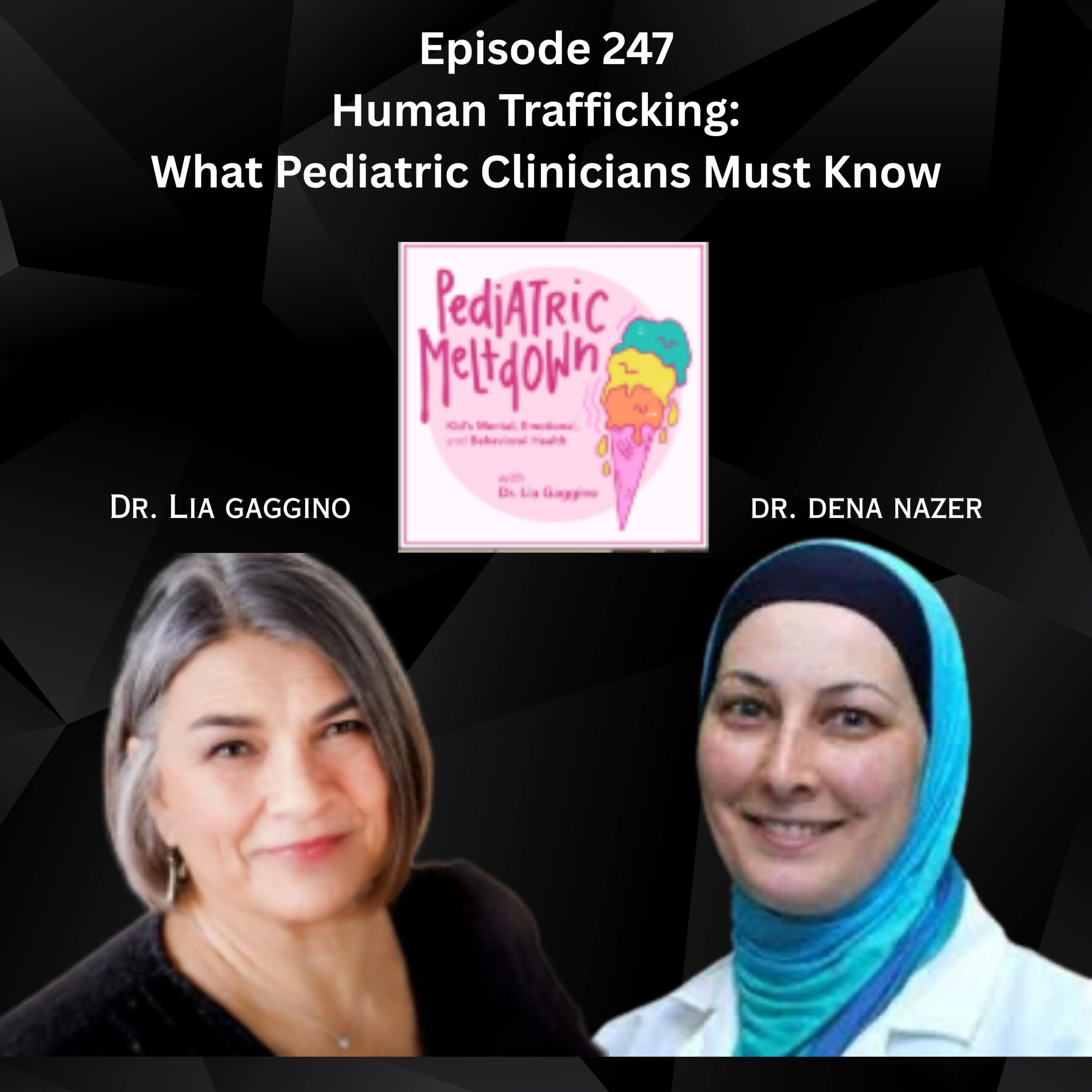Bipolar Disorder in Youth Part 2: Medications and Monitoring
How can we help teens with bipolar disorder manage their symptoms and transition successfully into adulthood?
In this (part 2) episode of Pediatric Meltdown, host Dr. Lia Gaggino and child psychiatrist Dr. Jeanette Scheid discuss managing bipolar disorder in young adults during major life transitions. From medications for bipolar disorder in youth to support resources, they explore how parents and healthcare providers can identify early signs of a bipolar manic or depressive episode and implement effective treatments. Dr. Scheid shares practical strategies for maintaining stability, including sleep schedules, substance use prevention, and the vital role of college support services.
Whether you’re a healthcare provider or parent seeking to understand bipolar disorder treatment for teens, this conversation offers clear guidance for helping young people thrive.
[00:33 -10:28] Critical Warning Signs and Transition Risks for Young Adults with Bipolar Disorder
- Poor sleep patterns often emerge as one of the earliest indicators of potential manic episodes
- Early symptom recognition training for both parents and youth helps prevent severe episodes
- Regular psychoeducational conversations with everyone in the youth’s support system enhance management success
- Living independently introduces new challenges that require careful monitoring and support
[10:29 – 19:29] FDA-Approved Medications for Youth Bipolar Disorder: A Primary Care Guide
- Key antipsychotics including aripiprazole, quetiapine, risperidone, olanzapine, asenapine, and lurasidone are FDA-approved, for adults with bipolar disorders. There are fewer medications approved for youth due to lack of clinical studies.
- No anti-seizure medications currently hold FDA approval for bipolar disorder in youth, though some are approved for adults
- Most common lithium side effects include headache, nausea, increased thirst, and mild tremors
- Regular thyroid function monitoring is essential, often requiring collaboration between pediatricians, endocrinologists, and psychiatrists
[19:30 -39:22] Understanding Lithium Treatment in Youth Bipolar Management
- Therapeutic window for lithium is narrow, ranging from 0.6 to 1.2 milliequivalents per liter, requiring careful monitoring and frequent lab work
- Dehydration and changes in salt balance can trigger dangerous lithium toxicity levels
- Family medical history plays a crucial role in treatment decisions, as demonstrated by cases where lithium proved more effective than second-generation antipsychotics
- Regular lithium level monitoring (1-2 times yearly) is necessary for stable patients, with more frequent checks during dose adjustments
[39:23 – 50:50] Building Knowledge Bridges: What Primary Care Needs to Know About Youth Bipolar Care
- Utilizing child psychiatry access programs as learning resources for medication management
- Understanding safety profiles of common medications, even when not directly prescribing
- Recognition of medication effects similar to monitoring diabetes care in primary practice
- Value of ongoing consultation with psychiatric specialists for medication questions
[50:51 – 1:04:37] Closing segment Takeaway
Links to resources mentioned on the show
Resources Part 1:
AACAP Facts for Families: Facts for Families
AACAP Resource Center Bipolar Disorder
Resources Part 2:
AACAP Facts for Families: Facts for Families
AACAP Resource Center Bipolar Disorder
AIMS scale for abnormal movements associated with psychotropic medications: AIMS Scale
Other episodes you may like:
161 Menstrual Equity Changes Lives: The Power of Days
151 American Indian/Alaskan Native Youth: Beyond Adversity
Key quotes for Twitter:
“The common side effects with lithium when it’s used, when it’s when there aren’t any concerns, just things that can happen from use, is the commonest things are things like headache and nausea, thirst because it is a salt, and therefore people tend to drink more.”… Dr. Jeanette Scheid on Side Effects of Lithium
“I think that when those boxed warnings for the SSRIs first came out and folks were very concerned and I think that was also a matter of timing, folks became very concerned about using SSRIs and not being able to follow-up appropriately and manage them.”… Dr. Jeanette Scheid on Concerns Around SSRIs and Antipsychotic Usage
FULL TRANSCRIPTS AVAILABLE UPON REQUEST
THANK YOU FOR YOUR SUPPORT!
Pediatric Meltdown was listed as a Top 20 Pediatric Podcast on FeedSpot.
If you’d like to connect with me, you can find me on LinkedIn, Facebook, and Instagram, or email me at gagginol@gmail.com. To learn more about me visit https://www.pediatricmeltdown.com
LOVE WHAT YOU HEARD? Leave us a 5-star review so we can continue to provide you with great content. Share this episode and help people know more about children’s health and well-being.








